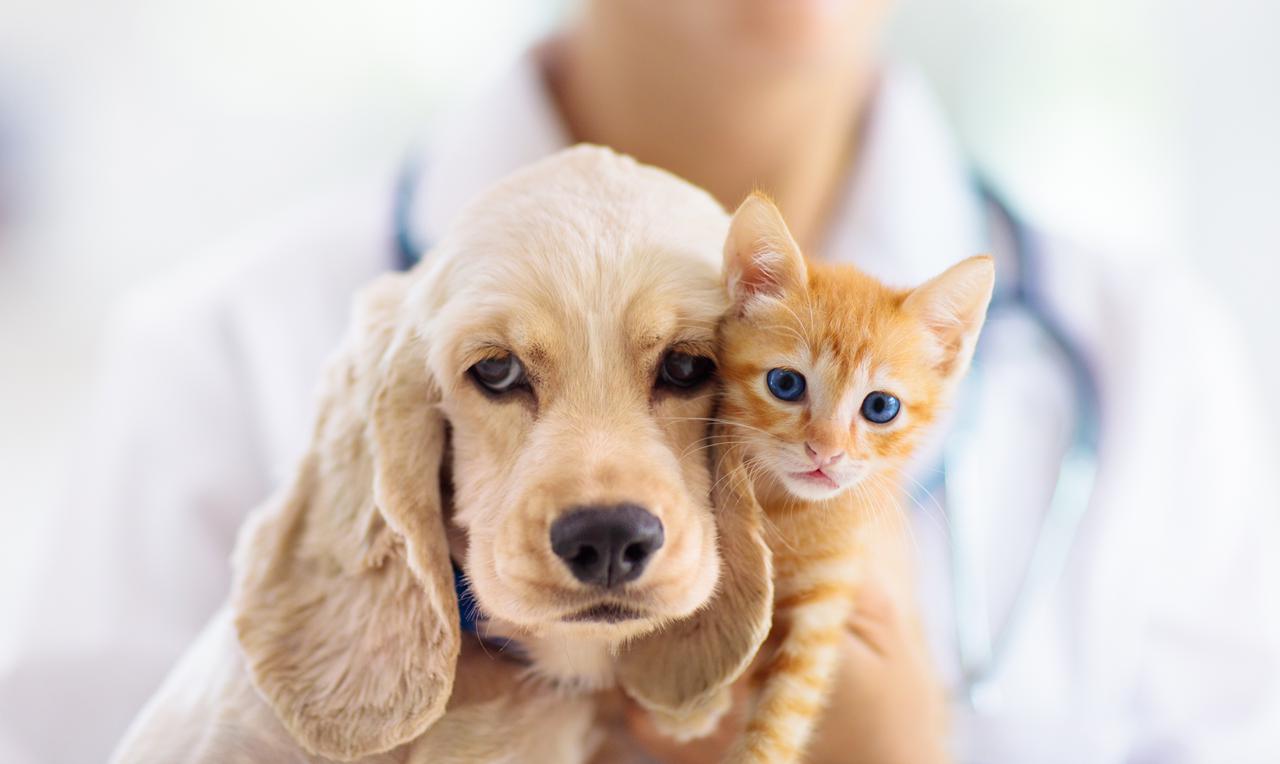Tails
Making pet parenting easy

Age Based Nutrition for your Pet
This entry was posted on 2023-05-24.
Age Based Nutrition (also called Life stage feeding) is a term that means feeding your pet what they need at each stage of life.
First Life Stage: Kitten or Puppy
There is a general consensus amongst veterinarians that a puppy or kitten needs to be fed a puppy or kitten formulation until the pet has achieved 90 percent of its adult size. This is usually at 10-12 months for cats and small or medium breed dogs, while large (>25kg adult weight) or giant breed dogs are only fully grown by 18-24 months of age.
Puppies and kittens have a rapid growth rate, but relative small gastrointestinal tracts. Therefore their food needs to be energy dense in order to provide adequate energy in small meal sizes. For this reason puppy and kitten food are higher in fat content than that of adult animals.
Puppy and kitten food needs to be higher in protein content than their adult counterparts in order to provide all the essential and nonessential amino acids for growth. Puppy and kitten food is also higher in calcium and phosphorus which promotes good bone health.
When it comes to large or giant breed dogs nutritional recommendations are also different than those for their smaller counterparts. Because large-breed puppies have a genetic propensity for rapid growth, they are prone to skeletal abnormalities. Feeding a diet that is labeled for large-breed puppies is recommended. These diets are formulated to regulate the calories and calcium intake needed to minimize the risk of developmental problems such as hip dysplasia and osteochondrosis, a condition in which there is disruption in the normal maturation of cartilage to bone. The failure to feed a diet formulated for the specific needs of large-breed puppies can result in pain secondary to arthritis and the possible need for corrective surgery. Large breed puppy diets often also contains chondroitin and glucosamine to help develop healthy joints.
Second Life Stage: Adult
This life stage is from the end of the kitten or puppy stage and until their senior years starts. Adult food is a well-balanced diet that contains everything that a healthy adult cat or dog needs. This has fewer calories than the puppy/kitten food so that they can maintain a healthy weight. Neutered animals have lower energy requirements, so they may need to go on a ‘diet’ or “neutered pet’ food to maintain a healthy weight. It is worth the investment so that they do not pile on the pounds during their adult life.
Third Life Stage: Senior
Cats are usually considered senior after 10 years of age. However, dogs don’t have a universal age of seniority because of their wider variety in size. Larger breed dogs tend to have shorter life spans than smaller breeds. For this and other reasons, experts suggest that dogs be considered senior when they reach the last 25 percent of the estimated life span for their breed. On average this translates to the following ages:
Small or toy breeds (less than 10kg): 8 to 11 years
Medium-sized breeds (10-25kg): 8 to 10 years
Large breeds (25-45kg): 8 to 9 years
Giant breeds (more than 45kg): 6 to 7 years
Senior food is usually reduced calorie but with a blend of vitamins, minerals and supplements to support the immune system and promote healthy kidneys and joints. The reduction in calories is because our senior pets are less active than they used to be, if we also reduce the calories this should reduce weight gain (and more importantly, excessive weight on old joints). Senior diets often also include chondroitin and glucosamine to help support your old friend’s joints.
An older pet also needs a food rich in omega fatty acids and antioxidants to help with their brain function that is slowing down.
However, senior pets are also more likely to have chronic conditions (e.g. liver or kidney problems) and therefore specific diets are formulated to help manage these conditions. Ask your vet to recommend a diet specifically for your senior pet.
The additional life stage: Pregnancy and Lactation
A pregnant mum’s energy requirement may be 30-60% higher than normal adults depending upon the size of the litter. The challenge during the third trimester, especially in the final weeks leading up to delivery, is the fact that the abdomen is filled with puppies (or kittens), leaving little room for food in the gastrointestinal tract. Therefore a highly digestible, high quality puppy diet is generally recommended during the third trimester, and multiple small meals may provide the mother with the means to maintain adequate nutrient and calorie intake. The extra calcium in the diet is used to build the skeletons of the fetuses and later for mom’s milk production.
The exception to this rule is pregnant large breed dogs: Do not feed a puppy food designed for large breed puppies to the mum as this food will not have the correct Ca:P ratio to support the developing bones of the fetuses or healthy milk production in the mother. Rather use a diet formulated for medium breed puppies.
Take home message
Science has helped us produce the best dietary options for each stage of you pet’s life and we as vets highly recommend following them. The right nutrition is the foundation of good health; it can even mitigate certain health problems from developing or progressing.


